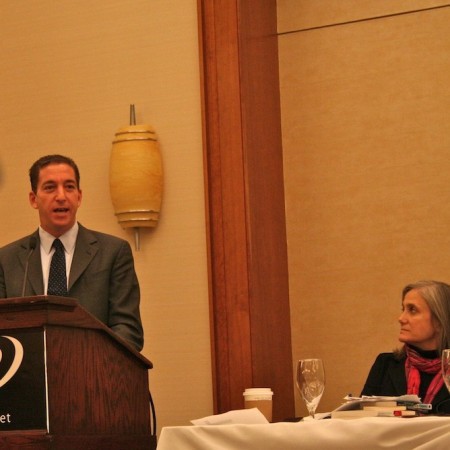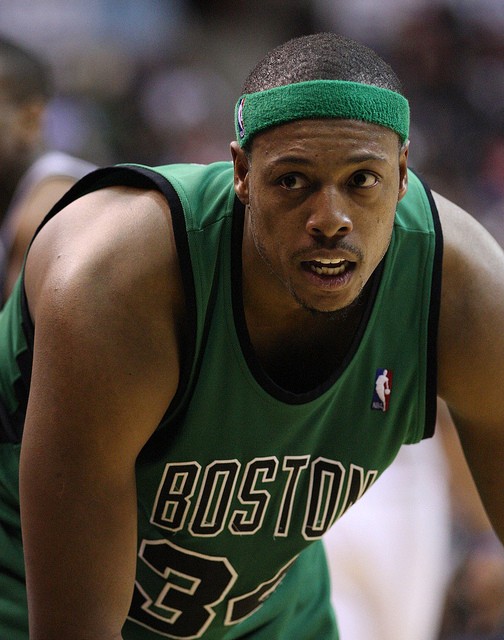How To Read Poetry
“In a book that he clearly hopes not just tourists will read, he sets out to help readers get better acquainted with poets but is just as interested — or more — in nudging poets to take stock of themselves and how little they know about who their readers might be. He doesn’t suggest poetry should be easy — to read or to write — but he thinks it shouldn’t create so much alienation between readers and poets.”
— Craig Morgan Teicher (a contributor to our poetry section) says some very nice things about Awl pal David Orr’s Beautiful & Pointless: A Guide to Modern Poetry. If you missed it, you should really check out Orr’s culture diary here.
Not Drinking Is Awful

Here is a harrowing story about what happens if you stop drinking: your friends abandon you, you disappoint your romantic partner and the very moments which once brought such joy become tedious events to be endured rather than celebrated. On the plus side, you lose weight and you think a little more clearly, but does that sound like a trade-off you’d want to make? It does not. This object lesson on just how miserable life is for the sober has made me feel much better about the fact that I cannot reduce my own consumption. And now I’m off to the bar!
Photo by bl0ndeeo2, from Flickr.
Movie Reviewed
“Critics in America have panned this movie as a cheesy chick-flick, but there are positives. It is recognisably a film, in that it takes place on a screen. Events run in a forward direction.”
— The Evening Standard’s Richard Godwin heaps praise on William and Kate: The Movie.
An Interview With Glenn Greenwald
by Katjusa Cisar

Salon writer Glenn Greenwald got rock star treatment at the National Conference for Media Reform, held this past weekend in Boston, where he took part in a standing-room-only panel discussion of WikiLeaks with Emily Bell of Columbia’s Tow Center for Digital Journalism, Greg Mitchell of The Nation, Australian journalist Christopher Warren and Micah Sifry of Personal Democracy Forum.
Cheers of “Hear, hear!” rippled through the crowd after Greenwald argued that “what WikiLeaks is doing is what journalism is all about.” He’s written extensively about Julian Assange’s network and particularly about accused document-leaker Bradley Manning.
He spoke with me after the session about media transformation, WikiLeaks, what drives him to blog and the siren’s call of The Drudge Report.
An acquaintance in Madison, Wisconsin, recently tweeted — in the context of the coverage of protests there — that mainstream media doesn’t exist anymore. There’s only corporate media, local media and social media. Your thoughts?
Yeah, “mainstream media” is never really a term I’ve used. Even though it’s such a commonly used term, I’ve never found it particularly helpful or accurate because I don’t think the corporate media has ever been mainstream. The word “mainstream” connotes some sort of representation of the average person’s views, and I don’t think that the media outlets owned by the largest corporations are representative of the mainstream. I prefer the term establishment media, because I think they speak for the political establishment. I think clearly they’re most influential in shaping how mainstream America thinks. So in that sense, if you want to use the word “mainstream,” it fits there. But even their influence is waning and eroding in lots of different ways as a result of these competing entities that aren’t owned by corporations. So, even in that regard, it’s becoming less applicable.
So how is that all shaking out, then?
Well, it’s just so, so much easier now than it was even five years ago and certainly ten years ago to create media outlets and reach large numbers of people. You don’t need big buildings. You don’t need to pay for printing and delivery. The Internet enables all of that to be done very cost-free. As people have come to distrust large media outlets, they’re starting to turn to alternatives, like local media, Internet and blogs and even social media, where people can just communicate directly with the citizens without the mediation of large corporations. That has just absolutely changed the way political discourse takes place and it has turned a lot of people away from large media outlets
In Great American Hypocrites, you wrote that The Drudge Report directs media focus and referred to Karl Rove as the “North Star” for journalists. Who or what is serving in that role now?
Well, I think at the time that I said that, the Republicans were still in power, and I think what establishment journalists revere more than anything else is political power. For eight years, it was perceived that Karl Rove was the sort of engineer of political power, and therefore he was the one to whom they listened most intently. Now that Republicans have sort of been discredited, and there’s Democrats who are running Washington, I think they sort of listen more to Democratic political consultants. But absolutely, the stranglehold on political discourse that The Drudge Report used to exercise and that these media institutions that followed his framing used to exert has absolutely been undermined. They still occupy that role in terms of Beltway discourse — you know, it’s still the case that congressional staffers and editors and segment producers click on The Drudge Report every eight seconds, it’s almost like some kind of compulsive tick they have just from habit — but there are so many other sources they look to as well in order to shape what stories they report.
What sources in particular have supplanted it?
The Internet has just democratized political discourse, and has vastly expanded not just the number but the type of voices that are heard. I can pretty much guarantee that every single newspaper editor, assignment editor and television news producer reads political blogs regularly, people who are just independent bloggers who five years would not have been paid any attention. They just look to a much greater diversity of sources now. They trust a lot more sources than they used to, and no longer feel that they have to march in lockstep behind one or two.
Last year, you wrote on Salon that the word “terrorist,” through manipulation in the government and media, has become meaningless. What other words are shaping media or reality now?
If you even look at what’s happening in Libya right now, the position of the Obama administration is that the reason that the President is permitted to order troops to participate in what’s happening in Libya is because it’s not really a war, even though we have fighter jets dropping bombs on buildings and blowing them up and AC-130 aircrafts shooting machine gunfire, huge amounts of machine gun ammunition, at troops on the ground. I mean, to me, it seems like if you send your fighter jets and aircraft and military to another country to attack that country’s military, by every meaningful definition, that’s a war. Yet, you can’t really find it being described as a war. It’s an “intervention,” or “a military action.” This kind of manipulative, Orwellian tactic of using language to dictate outcome is really common. “Terrorism” has never had any fixed meaning. It’s from the start been a term that’s been used to basically de-legitimize the violence of one’s enemies and legitimize one’s own violence. It’s amazing how prominent that term plays in our political discourse and yet how impoverished of meaning it is.
One significant example The New York Times did, in terms of manipulating language: for six years, they had an editorial policy that the word “torture” was prohibited to describe Bush Administration interrogation practices, even though all aspects of international law and prior United States government pronouncements and every relevant piece of evidence had proclaimed at least some of those tactics to be torture. The New York Times refused to use the term because the Bush Administration objected and said it wasn’t accurate. So, it’s not just government officials but newspapers that play a significant role in how that language is manipulated as well.
What good does a conference like this do?
I think it does a lot of good. I think sometimes there’s this assumption that everyone here is like-minded, and therefore it’s choir-preaching. I don’t really think that is true. I think you’ll find there are lots of different views about lots of different things. But even if that were true, that everyone here already thinks alike, there are lots of benefits of convening with people who are devoted to the same causes as you.
In the media and political world, there are great amounts of division. So, it’s no secret that conservatives exist in their own world and progressives exist in their own world, and there’s very little overlap. So, I don’t think one of the purposes of this conference is to persuade Fox News and conservatives that they’re acting in misguided ways. I hope nobody has that intention, because it won’t be fulfilled.
But for example, in all the media criticism that I just heard on that panel that I did, nobody mentioned Fox News. It’s just a given that they’re a rightwing propaganda outlet, and that’s what they want to be and are going to continue to be. I think the conversation tends to be more about allegedly mainstream sources or neutral sources like the New York Times. And there I think the conversation can have an impact because, although Fox News doesn’t pay attention to what goes on here, The New York Times does.
In what ways do you consider WikiLeaks to be journalism?
Publishing secret material that reveals what government sources and government factions and corporate factions are doing is inherently journalistic. You know, it’s a different kind of journalism. I don’t think it much matters what label you put on it. I don’t really care if it’s considered journalism or not. I’m more interested in if it’s a good or a bad thing. Whatever it is that they’re doing I think is extremely valuable and should be encouraged and supported — whether it’s journalism or whistle-blowing or secret-spilling or transparency-generating, you know. I don’t care that much about the label. Julian Assange is calling himself the editor-in-chief of WikiLeaks because there are legal protections available to journalists in lots of countries that aren’t available to non-journalists, so it could have implications in that regard. But I’m not WikiLeaks’ lawyer, so I’m not that interested in that question.
What’s your daily reading regimen?
I usually just start off, like, every day without any idea of what I’m going to write about, and so I spend between three and six hours just reading as much as possible. I don’t really have a pattern. I start off with a few large newspapers but then I always end up at different blogs and different places until I find what I want to write about for the day. I mean, it’s not totally random. I read the Guardian, I read the BBC. I read The New York Times and Washington Post and the Wall Street Journal. Every day, there’s a set of blogs I read. But that’s five percent of what I end up reading. The rest of it is pretty random. But not random in a sense that I just pull them out of a hat, but I just end up at different places by following different threads of discussion.
Do you ever worry about getting into a rut, or do something to get out of a rut when you recognize it?
You know, usually, my bigger problem is that there are more things that I want to write about than I have time to write. If I’m not passionate about what I’m writing about, then I just don’t write about it. There have probably have been times when some of my readers have felt like, “OK, I think you’re covered this too much.” I do what I do because it’s a labor of love. There’s a lot of passion behind it. If anything, I just feel an anxiety about not being able to pay as much attention to the things that need attention.
Anxiety seems to be a side effect of being online.
Yeah, exactly. I always tell people who want to start blogs, it’s a great way to have an outlet. I don’t think I’d be able to pay attention to political issues if I didn’t have the outlet of my blog, like if I just had to keep all that anger and frustration inside and read about lies and have no means of addressing them and exposing them. It’s a healthy way, ultimately, to expunge these negative emotions.
Katjusa Cisar lives in Atlanta (but not for long) and plans to claim her cat Clyde on her taxes as an office assistant.
In photo: Glenn Greenwald speaks at the WikiLeaks panel at the National Conference for Media Reform while moderator Amy Goodman listens at right.
The 'Sleeping Beauty' Trailer: !!!
Hoo boy! Terrific and creepy Australian author Julia Leigh’s first film is going to Cannes and, holy smokes. (via)
How Clean Is Your Belly Button?
How Clean Is Your Belly Button?
Do you wash your belly button with soap? Apparently most people do not. You’re all filthy animals.
Playoffs? PLAYOFFS? Playoffs.
Playoffs? PLAYOFFS? Playoffs.

The first round of the NBA playoffs is upon us — thankfully, I don’t mean that literally — and I, for one, am excited. Not only because I will get to hear “Won’t Back Down” by Tom Petty alongside footage of Kevin Garnett staring and sweating (pretty much the content of every NBA promo during the past five years), but also a really good team is going to lose their first round match-up to someone not as good, and an ESPN anchor of indiscriminate race will dutifully report how it is a “shocker” and how it “changes things” — even though, you know, we aren’t morons.
If I had to choose a team least likely to flame out in the playoff’s first-round, it would probably be the Chicago Bulls, who will have so little trouble with the Indiana Pacers that Derrick Rose will have to write “game v. Pacers” on his hand, so he doesn’t forget that he has somewhere to be. And the team most likely to be upset in the first round will be the Dallas Mavericks, by the Portland Trailblazers, which I’ll explain later. Hopefully.
In the Eastern Conference, only two of the four match-ups appear to be competitive. In addition to the Bulls, who have been making a clicking sound since before the All-Star break, the Miami Heat have lost just enough games to draw a great matchup for them — the Philadelphia Sixers who have no answer for LeBron James or Dwyane Wade. Both of those series will be uneventful and filled with “a 17-point lead at the half!” proclamations from the poor announcers, trying to make blowouts sound even remotely exciting. Perhaps I’m in the minority, but I’ve seen both James and Wade play scintillating playoff basketball, and the Sixers second-best player, is playing with a broken hand. Andre Igoudala is pretty fantastic, but Jrue Holiday has proven nothing in all of his many, many NBA playoff games. I hope the Heat lose (I really do), but I think there’s a better chance of the Sixers mascot, Hip-Hop, tearing off his mask to reveal Allen Iverson than the Sixers winning this series. No offense, Sixers.
The other two games are harder to predict. I naturally assumed that the Orlando Magic would finish as one of the top three seeds. My bad. I say that because, other than the Bulls, they probably field the deepest team in the Eastern Conference, although the coalescing I had assumed would’ve happened by now just hasn’t. I’m still waiting to see Gilbert Arenas to wake up, but I have to acknowledge that may never happen.
The problem is that no one will give the Hawks a chance, despite the fact that they took the season series three games to one, and they match-up rather well with the Magic. If Joe Johnson has learned from last year’s unfocused meltdown — no one ever remembers your regular season success, unless they’re writing about you choking — Al Horford can occupy Howard’s attention long enough for the Hawks’ complementary pieces (Smith, Crawford, Williams and Horford) to outshoot and out-rebound their counterparts on the major (Richardson, Turkoglu and Redick). And I can see the Hawks stealing this series. There I said it. I may have hedgingly chosen an Atlanta team to win a sporting event. At any moment, lightning may strike me down.
Where to begin with the Knicks-Celtics? Well, I can tell you what I think and what I believe — and they are two different things. I think the Knicks can make a series of this. And that the Celtics cannot defend Carmelo Anthony and, defensively, Chauncey Billups can impede, if not limit, Rajon Rondo. And the Knicks lack of an interior presence isn’t a shortcoming against a team that traded its own interior presence away a few months ago. And that the Celtics are old and fading and the Knicks are peaking. And here’s what I believe: the Celtics have been there, they are unbelievably well-coached, they get every call, run a disciplined half-court offense that in Paul Pierce has a small forward who is a near-equal offensively to Carmelo. And I believe that Kevin Garnett plays with an intensity that is unmatched on the Knicks. If the Celtics come out firing, it will be a 5-game series. Tragically.
The Western Conference playoffs will probably have two close series. Although I have been underwhelmed by the Spurs’ bloodless efficiency all season, there’s only a 20% chance that they lose to the Memphis Grizzlies, the team that the blogosphere has anointed this season’s Cinderella. I like Zach Randolph but he will have his hands full with Tim Duncan. The rest of the Spurs are too experienced: Tony Parker will run circles (literally) around Mike Conley. Besides, the Spurs are too focused already on what’s next to even contemplate losing this series. I just read on one of those blogs that the Spurs will regret taking Grizzlies, with whom they split the season series, lightly, and I almost spit my coffee. This one is over now, three days before it begins.
The smart money is obviously on the Los Angeles Lakers to step all over the New Orleans Hornets, and at this point, I would probably go with that prediction, especially since David West is out. If Andrew Bynum is more banged up than they are saying, and Kobe continues to look like a guy suffering from sleep apnea and overuse — his tantrum-into-a-gay-slur performance the other night was a sure sign that he needs some time off — and the Hornets can force the tempo, this could be a hairy series for the Lakers. Chris Paul will have big games, as he seems to grow in the spotlight, but I have a feeling that, afterward, the storyline will be that Chris Paul looked around his locker room filled with castoffs from other teams (no offense, Trevor Ariza) and realize that, to win in the new NBA, he needs to play with one or two more superstars. Like, you know, the Knicks.
Personally, I think the Oklahoma City Thundersticks and Denver Nuggets series will be entertaining, but then again, I thought “Wrestlemania 27” was entertaining. Will the games be high scoring? Yes. Will the Nuggets win more than two of them? I can’t see that happening. People speak of the Knicks cast-offs as if they are a group of seasoned playoff performers. Not so much. They are, to a man (except Mozgov) good complementary players, but none can elevate enough to give Oklahoma City trouble, especially since that team was gifted the Celtics interior presence, Kendrick Perkins, earlier this season.
Matter of fact, if I had to choose a team to come out of the Western Conference, it would be Oklahoma City, with Kevin Durant, Russell Westbrook, that guy with the funny beard whose name escapes me and the center who should be leading the Celtics to the Eastern Conference title. Take that, everybody even remotely involved in basketball punditry.
Last, but certainly not least, the Portland Trailblazers will topple the No. 2 3 seed, Dallas Mavericks. They will steal game one in Dallas, and the Mavs, who are the Michael Jordan of playoff underachievers, will never recover. I could be wrong, but I see it going this way. And then Mark Cuban will scratch his head, grab his Wiffle ball bat and head back to his mansion filled, presumably, with Ed Hardy-designed Mavericks t-shirts and mom jeans, contemplating what a guy has to do to buy a team in an actual professional sports town. No offense, Cowboys.
Tony Gervino is a New York City-based editor and writer obsessed with honing his bio to make him sound quirky. He can also be found here.
The Maine Labor Mural Story Keeps Getting Better
“Governor Paul LePage, who previously made national headlines for telling the NAACP to ‘kiss my butt,’ has explained his decision to remove the mural by citing an anonymous fax from a ‘secret admirer’ comparing the 36-foot wall painting to something in ‘communist North Korea where they use these murals to brainwash the masses.’”
— The Maine labor mural story is the best story.
Would-Be Presidential Candidate With Terrible Hair Burying Himself Right Now
“i have always had a great relationship with the blacks” says #Trump.Thu Apr 14 14:23:23 via web
Azi Paybarah
azipaybarah
New York Observer reporter Azi Paybarah is live-Tweeting Donald Trump’s interview with Fred Dicker. It’s… going well?
Fried Food: It's Good For Your Heart

Science, please validate my terrible lifestyle!
Research suggests that the odd greasy treat somehow boosts the heart muscle, reducing the amount of damage done when a heart attack occurs. Those with a taste for junk food will be glad to know that it is thought that fried foods, like chips, bacon and doughnuts, provide the best protection.
There’s more, but it’s all the kind of “despite the findings, doctors caution” equivocations that ruin the joy in a discovery like this one. Let’s be honest, we’re all a basket of mozzarella sticks away from a cardiac event; the very least we can do for our physical well-being is scarf down the shiny stuff to give our heart the important workout it deserves.
Photo by bovinity, from Flickr.
